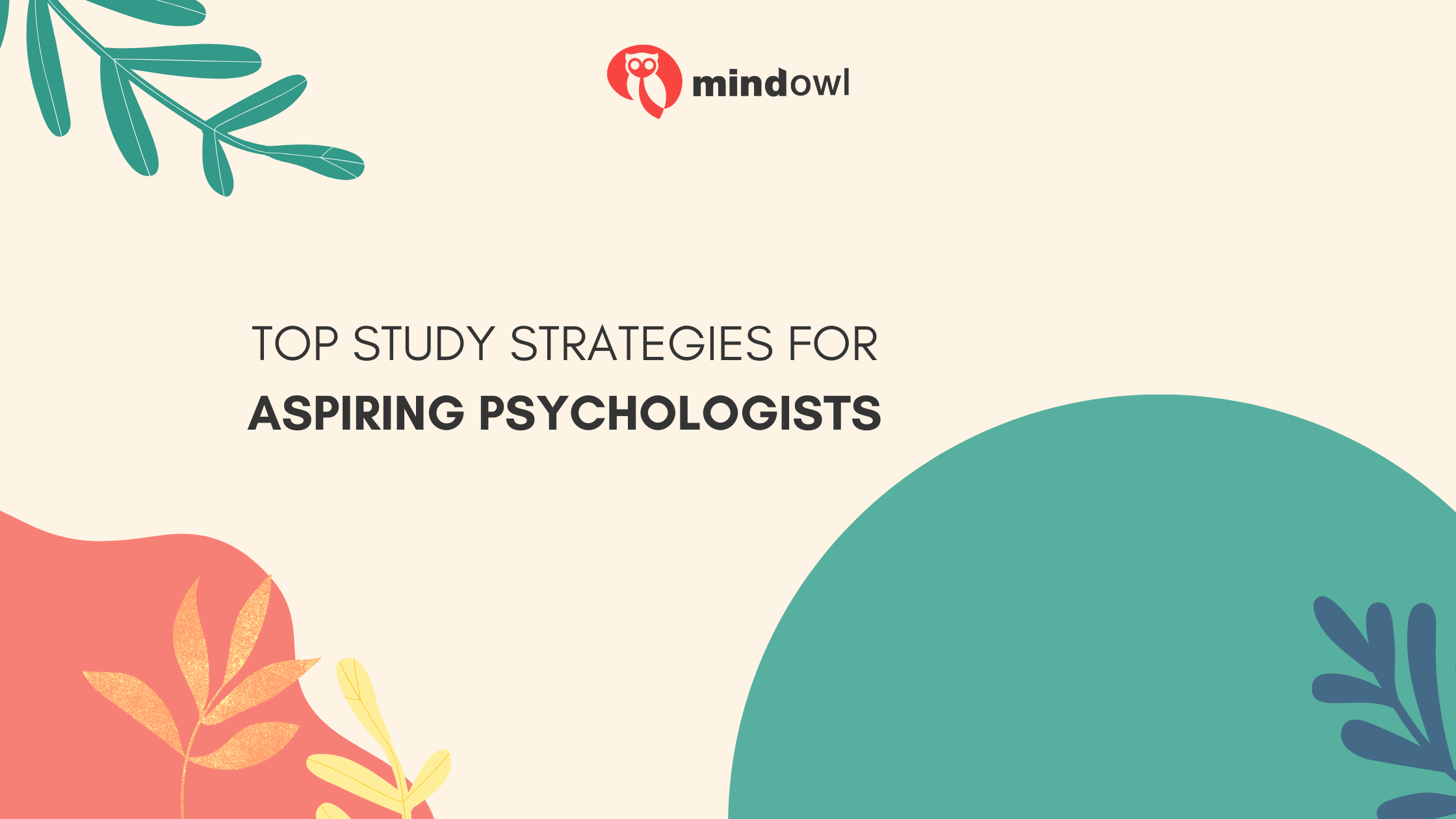Psychology, with its intricate theories and myriad concepts, often poses an intellectual challenge for newcomers. The discipline delves into an expanse of content, from the philosophical underpinnings to the nitty-gritty of research methods. Students might grapple with topics as diverse as human development, cognitive processes, and abnormal behaviour.
Effective study strategies become crucial to absorb and apply this wide-ranging knowledge capably. Mastering the art of learning in psychology not only aids in academic success but also sharpens critical thinking and application skills that are essential across all spheres of the field.

Optimal Study Techniques for Aspiring Psychologists
Incorporating evidence-based study methods can significantly enhance your grasp of complex psychological concepts. Establishing robust study habits is not only pivotal for excelling in psychology but also proves beneficial across various academic endeavours. These strategies are engineered to not just aid in the retention of psychological knowledge, but also to refine the critical thinking and adaptive learning skills that are invaluable in any scholastic discipline.
Crafting a Strategic Study Schedule
Developing a deliberate study schedule is fundamental for navigating the extensive material encountered in psychology. At the commencement of every course, take time to formulate a strategic plan that paves the way to scholarly triumphs. Efficient planning reduces eleventh-hour pressure substantially, allowing you to assimilate information at a comfortable pace. Implement these tactics to construct an effective study timeline:
- Establish a Consistent Timeframe: Gauge the volume of study material and allocate weekly time slots for class reviews and assignment completion. Begin each week by outlining your academic targets and estimating the time required to tackle assignments, readings, and reviews efficiently.
- Designate Study Blocks: Assign specific periods each day exclusively for engaging in your coursework, thus ensuring consistency and focus. Maintaining a dedicated schedule is critical, even on days when time is scarce.
- Adhere to the Two-Hour Rule: A benchmark to guide your study efforts is the two-hour rule—investing two hours for self-study for every hour spent in lectures helps in reinforcing newly acquired knowledge and skills.
Strategic Learning Approaches in Psychology
As an aspiring psychologist, engaging with evidence-backed study strategies will be a keystone in your educational journey. Delving deeply and critically into your study material elevates comprehension beyond passive reading. Here are refined strategies to optimise your learning:
- Deep Analysis: Foster a habit of critically analysing course content, which aids in fostering a profound understanding of complex theories and applications.
- Active Notation: Slowly dissect the study materials, writing down essential points and posing critical questions, ensuring a two-way dialogue with the content.
- Self-Assessment: Post-reading, employ the elaborative interrogation method by quizzing yourself on the finer points, for example, questioning why certain brain regions govern specific functions.
- Comprehension through Teaching: Translate definitions and concepts into your language by teaching them to yourself, solidifying your understanding.
- Concept Synthesis: Regularly distil material to its core ideas and revisit them frequently—this strengthens retention through the “testing effect.”
- Distributed Practice: Prefer multiple, spaced-out study sessions, which research shows trump last-minute cramming for exam preparation.
- Varied Subject Practice: Mix related concepts within a single study period, a method known as interleaved practice, to enhance adaptability and recall.
- Multisensory Learning: Tailor your study to employ auditory, visual, and kinesthetic elements, such as combining lecture recordings with illustrative mind maps, to reinforce memory and comprehension.
By integrating these research-supported strategies into your study practices, you will not only enhance your learning efficiency but also prepare yourself for the dynamic and multifaceted nature of psychological practice.
Maximising In-Class Learning
Leveraging in-class time effectively can exponentially benefit your educational pursuits in psychology. As you embark on a new term, strategically planning to optimise the hours spent under the tutelage of your professors and within the collaborative atmosphere of your peers is paramount.
Effective Class Preparation
Before stepping into the classroom, ensure that you’ve thoroughly studied the assigned readings and are prepared to engage with the content. Completion of assignments and projects, along with participation in pre-tests, forms the backbone of proactive preparation. This readiness not only primes you for the trajectory of the lecture but also propels you to contribute meaningfully to classroom discourse.
Engaged Participation
With a foundational grasp of the material, your readiness to engage in discussions will not only enrich your own understanding but also possibly introduce novel interpretations and perspectives. Every class session is an opportunity to refine your thoughts and align them closer to the academic rigour of psychological studies.
Listening as a Learning Tool
While absorbing insights from instructors is vital, listening to your peers can be equally enlightening. Different viewpoints can challenge your assumptions and broaden your cognitive horizons, ultimately contributing to a more holistic comprehension of psychological principles.
Mastery of Note-Taking
Develop the skill to distil lectures into potent notes that encapsulate the essence of class discussions and teachings. Precision in note-taking allows you to walk away with concentrated knowledge—key concepts, pivotal discussions, and critical insights—sans the excess.
By embracing these approaches, you position yourself to extract maximum benefit from your time in the classroom, thus fortifying the knowledge gained from self-directed study and research.
Collaborative Study Enhancements
Once you’ve established a personal grasp on your psychology coursework, broadening your study approach through collaboration can deepen your understanding. Here are two strategies to incorporate the power of group engagement into your routine:
Form Study Alliances
Join forces with your peers by participating in study groups or attending organised review sessions. These collaborations offer dynamic question-and-answer exchanges, often shining a light on areas needing reinforcement ahead of evaluations. Plus, the social component can make the study process more enjoyable and less daunting.
Teach to Comprehend
Solidify your mastery by explaining concepts to others. Whether it’s a classmate or a friend assuming the role of a pupil, articulating your knowledge cements comprehension and can reveal gaps in your understanding. As they say, teaching is often the best test of true mastery.
Incorporate these collective study methods to not only enliven your learning experience but also to ensure a thorough and resilient understanding of psychological principles.
MindOwl Founder – My own struggles in life have led me to this path of understanding the human condition. I graduated with a bachelor’s degree in philosophy before completing a master’s degree in psychology at Regent’s University London. I then completed a postgraduate diploma in philosophical counselling before being trained in ACT (Acceptance and commitment therapy).
I’ve spent the last eight years studying the encounter of meditative practices with modern psychology.

